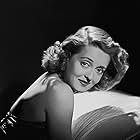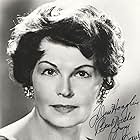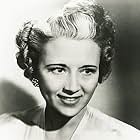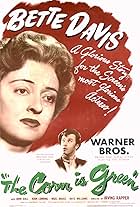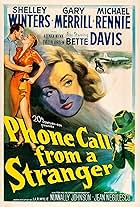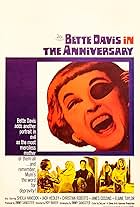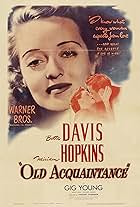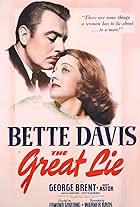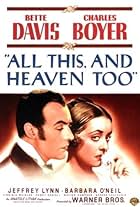IMDb RATING
6.8/10
2.9K
YOUR RATING
Resentful of her small-town life, a married woman schemes to run off with a rich businessman.Resentful of her small-town life, a married woman schemes to run off with a rich businessman.Resentful of her small-town life, a married woman schemes to run off with a rich businessman.
- Nominated for 1 Oscar
- 1 nomination total
Joel Allen
- Minister
- (uncredited)
Gail Bonney
- Woman
- (uncredited)
Frances Charles
- Miss Elliott
- (uncredited)
James Craven
- Man with Photographs
- (uncredited)
Ann Doran
- Edith Williams
- (uncredited)
June Evans
- Woman
- (uncredited)
Bess Flowers
- Secretary
- (uncredited)
Hal Gerard
- Waiter
- (uncredited)
Creighton Hale
- Townsman with Glasses
- (uncredited)
- Director
- Writers
- All cast & crew
- Production, box office & more at IMDbPro
Featured reviews
Beyond the Forest is directed by King Vidor and written by Lenore J. Coffee and Stuart Engstrand. It stars Bette Davis, Joseph Cotton, David Brian, Ruth Roman, Minor Watson and Regis Toomey. Music is by Max Steiner and cinematography by Robert Burks.
Resentful of her small-town life, Rosa Moline (Davis), a married woman, schemes to run off with a rich businessman - and she will do anything to achieve her goals...
Whilst not being on the same divisive page as something like Johnny Guitar, King Vidor's picture treads the same pathway to claims of camp and feverish staging. Davis is clearly miscast and too old for the role, whilst she overacts accordingly to either delight her fans - or irritate film fans after a noirish pot boiler of some substance. It's a tough call, and you really have to point the finger at Vidor for not reining Davis in, but if in the zone for a bit of Bovary histrionics tinged with noir flavours this has much to offer.
The pros and cons of small town Americana are vividly brought to life here, as is the central focus of a woman out of her dreams. Metaphors are rife to run in conjunction with the psychological imbalance of Rosa's mind, be it the mill furnace that lights up the sky at frequent intervals, or the steam locomotive that thunders through the centre of town to take folk off to the big city of Chicago, the aural smarts are superbly inserted by Vidor.
Using flashback as a starting point, Vidor firmly enters a noir realm, which continues throughout as he is aided considerably by Burks' photography. One of Hitchcock's main cinematographers of choice, it's a real pity that Burks didn't get hired for more noir ventures in the 50s. His work here is superb, low lights and side lights come to the fore in the final third as the femme fatale axis of story reaches a potent finale. Thus as Steiner rumbles away with his shock and awe, the pic is a tech credit force.
Sadly there's some fault lines to be irked by. Roman is utterly wasted in a pointless role, there's a Native American house maid character (Donna Drake) that's the focus of some unsensitive era treatments that's sole purpose seems to be just to make Rosa out as more of a git than already established. While Toomey and Watson (the latter a key character) are badly under used.
However, whilst not jumping on the "it's a masterpiece" bandwagon, this is a film of many filmic pleasures - perversely so me thinks... 7/10
Resentful of her small-town life, Rosa Moline (Davis), a married woman, schemes to run off with a rich businessman - and she will do anything to achieve her goals...
Whilst not being on the same divisive page as something like Johnny Guitar, King Vidor's picture treads the same pathway to claims of camp and feverish staging. Davis is clearly miscast and too old for the role, whilst she overacts accordingly to either delight her fans - or irritate film fans after a noirish pot boiler of some substance. It's a tough call, and you really have to point the finger at Vidor for not reining Davis in, but if in the zone for a bit of Bovary histrionics tinged with noir flavours this has much to offer.
The pros and cons of small town Americana are vividly brought to life here, as is the central focus of a woman out of her dreams. Metaphors are rife to run in conjunction with the psychological imbalance of Rosa's mind, be it the mill furnace that lights up the sky at frequent intervals, or the steam locomotive that thunders through the centre of town to take folk off to the big city of Chicago, the aural smarts are superbly inserted by Vidor.
Using flashback as a starting point, Vidor firmly enters a noir realm, which continues throughout as he is aided considerably by Burks' photography. One of Hitchcock's main cinematographers of choice, it's a real pity that Burks didn't get hired for more noir ventures in the 50s. His work here is superb, low lights and side lights come to the fore in the final third as the femme fatale axis of story reaches a potent finale. Thus as Steiner rumbles away with his shock and awe, the pic is a tech credit force.
Sadly there's some fault lines to be irked by. Roman is utterly wasted in a pointless role, there's a Native American house maid character (Donna Drake) that's the focus of some unsensitive era treatments that's sole purpose seems to be just to make Rosa out as more of a git than already established. While Toomey and Watson (the latter a key character) are badly under used.
However, whilst not jumping on the "it's a masterpiece" bandwagon, this is a film of many filmic pleasures - perversely so me thinks... 7/10
Bette Davis gave many great performances, but she did not make many great films or work with many truly great directors (with the exception of William Wyler & Joseph L. Mankiewicz). King Vidor ranks as one of Bette Davis' greatest directors and Beyond the Forest is her most underrated film (another underrated film is The Private Lives of Elizabeth & Essex, directed by the superb technician Michael Curtiz). The eminent film critic Pauline Kael wrote that "there's not a sane dull scene in this peerless piece of camp." And I agree that this film is never boring. It has elements of film noir, melodrama, comedy and stands the test of time, as it is not sentimental like so many of Bette's soap operas (The Great Lie is a great bore). I challenge anyone to watch this film and be bored by it. Impossible. It starts off slowly, but after the first 20 minutes, it is compulsively watchable: a hoot! And although Bette in her later years said she "loathed" this film, it is clear that she relished the part of Rosa Moline and was living the part as she played it. She poured into the part all of the frustration & fury with Jack Warner and the studio for giving her bad roles & bad scripts, her own fears of aging after she had her baby and she was no longer box office, and all the emotional turmoil (both the sexual electricity & the physical & verbal abuse) of her marriage to William Grant Sherry. Ruth Roman (who played a small role in this film) said that she watched Bette on set and it was all too REAL for her that she was terrified of Bette. And indeed, this is one of Bette's most real performances, however over the top it may be. Rosa Moline is a precursor to Margo Channing in All About Eve, yet I find Beyond the Forest more interesting because King Vidor is more of a stylist than Joseph L. Mankiewicz. All About Eve is theatrical, not cinematic; Beyond the Forest is pure cinema. Savor every frame of this fading femme fatale in this film noir farce. You will laugh at Rosa, be moved by her, feel sorry for her, but ultimately admire her for her courage, pride & determination. She was just a dame who was trying to get out of her own personal prison & hell.
Only Bette Davis (along with Joan Crawford) could take a trashy film and make it absolutely compelling. No, this isn't a good movie, probably not even a fair movie but oh, Bette, you make it all worthwhile.
Bette wears the worst wig of her career, some really surrealistic make-up and was years too old for the part......so what?? When she delivers those famous lines "What a dump", you could jump for joy. This is Davis at her campiest and you can bet she knew it.
The story line is fairly simple. A small town bitch wants to be a big city bitch and takes a lover to attain that goal. She couldn't care less that she has a husband, played by Joseph Cotton, when she sets her sights for the boyfriend played by that perpetually bland actor David Brian. All hell breaks loose as Davis chews up the scenery and her fellow actors. The final scene as Davis drags herself to the train station is the raison d'etre for the cult following that has developed around this film. It is a film lovers delight. She was some dame!!!
Bette wears the worst wig of her career, some really surrealistic make-up and was years too old for the part......so what?? When she delivers those famous lines "What a dump", you could jump for joy. This is Davis at her campiest and you can bet she knew it.
The story line is fairly simple. A small town bitch wants to be a big city bitch and takes a lover to attain that goal. She couldn't care less that she has a husband, played by Joseph Cotton, when she sets her sights for the boyfriend played by that perpetually bland actor David Brian. All hell breaks loose as Davis chews up the scenery and her fellow actors. The final scene as Davis drags herself to the train station is the raison d'etre for the cult following that has developed around this film. It is a film lovers delight. She was some dame!!!
"Beyond the Forest" is finally getting the respect it's always deserved. A number of film historians are finally appraising this masterpiece as the work of art it is. Thanks to its phenomenal star, Bette Davis, this King Vidor production has had to struggle with a bad reputation since it was first seen back in l949. Davis was going through a breakdown: she hated her studio, her marriage was dead, and Jack Warner finally kicked her ass off the Warner lot. Forever after, Davis always slammed everything about "Beyond the Forest" and people who never even saw it, joked about it and tore it to pieces. Especially, the gay crowds. When I saw "Beyond the Forest" at the old Regency Theater here in Manhattan back in the 80s, no one could enjoy it, since the gaggle of screeching queens ruined it for everyone by camping it up. Davis' inner turmoil and fury is what makes Rosa Moline literally seethe with fury, bristling with electricity in her greatest role. No other major star would have taken the risks that Davis does. As to the many comments about her black wig, make-up, clevage. This is how small-town women tried to look during that era. The Maria Montez look. I remember this from my small Southern town. All women dyed their hair black, grew long tresses, etc. Max Steiner's musical score is among his greatest (next to another masterpiece that Bette always put down, the l942 "In This Our life.")Davis' role is among the greatest ever put on screen. She displays her genius here like never before. To those who like to be clever and cute and view this gem as "camp", get a life. Davis is at her most brilliant. She nearly matches her brilliant portrayal of a psychopathic Southern Belle, Stanley Timberlake, in the great "In This Our Life." Bravo to Bette! To new viewers, watch it alone without the wisecracks, giggles and smart inside jokes. Warner Brothers did itself and its great star proud.
It was interesting seeing this soon after seeing The Man Who Wasn't There, the Coen brothers would-be 40s film-noir. Both movies are set in small towns, have way-out plots involving violent crime and illicit love, and feature main protagonists trying to get out of a rut. But whereas the Coens' nouveau-noir plays it deadpan, philosophical and slow, and thereby risks boring the audience stiff; the genuine article with King Vidor at the helm, races along, goes way over the top, and glues the viewer to the screen.
Melodramatic and flawed though it may be, I don't go along with those who regard the movie merely as a camp vehicle for some arch Bette Davis overacting as the "evil" Rosa Moline. This film has genuine substance and potency, and Hedda Gabler-like Rosa's near-hysterical exasperation with the suffocating small town atmosphere - symbolised by the ever-present smoke and dust from the local sawmill - and with her dull, worthy, medico husband (Joseph Cotton), must have rung a bell with many American and other women in the stifling post-war years. Her "What a dump!" quite probably echoed their inner thoughts, as may her reluctance to have a baby (contrasted in the film with another woman's eighth, delivered by the good doctor). Moreover, despite Davis playing a woman at least 10 years younger than her actual age, her scenes with David Brian as her wealthy lover are truly erotic, and some of the lines may raise eyebrows even today.
Those who dismiss this film should perhaps give it another chance, try to place it in the context of its era, and possibly ponder on how some of the "cool" masterpieces of today will be viewed by their grandchildren in 50 years time.
Melodramatic and flawed though it may be, I don't go along with those who regard the movie merely as a camp vehicle for some arch Bette Davis overacting as the "evil" Rosa Moline. This film has genuine substance and potency, and Hedda Gabler-like Rosa's near-hysterical exasperation with the suffocating small town atmosphere - symbolised by the ever-present smoke and dust from the local sawmill - and with her dull, worthy, medico husband (Joseph Cotton), must have rung a bell with many American and other women in the stifling post-war years. Her "What a dump!" quite probably echoed their inner thoughts, as may her reluctance to have a baby (contrasted in the film with another woman's eighth, delivered by the good doctor). Moreover, despite Davis playing a woman at least 10 years younger than her actual age, her scenes with David Brian as her wealthy lover are truly erotic, and some of the lines may raise eyebrows even today.
Those who dismiss this film should perhaps give it another chance, try to place it in the context of its era, and possibly ponder on how some of the "cool" masterpieces of today will be viewed by their grandchildren in 50 years time.
Did you know
- TriviaBette Davis thought Joseph Cotten was all wrong for the role of her husband, saying: "He's adorable. What in the world would she leave him for?"
- GoofsPrior to visiting lawyer's office, Rosa wipes off all her make-up, then is seen wearing bright lipstick during a close-up in waiting room, which immediately disappears for rest of scene.
- Quotes
Rosa Moline: What a dump!
- Crazy creditsThe film begins after the opening credits with this warning title: This is the story of evil. Evil is headstrong - is puffed up. For our souls sake, it is salutory for us to view it in all it's ugly nakedness once in a while. Thus may we know how those who deliver themselves over to it end up like the scorpion, in a mad frenzy stinging themselves to eternal death.
- ConnectionsFeatured in AFI Life Achievement Award: A Tribute to Bette Davis (1977)
- How long is Beyond the Forest?Powered by Alexa
Details
Box office
- Gross US & Canada
- $1,300,000
- Runtime1 hour 37 minutes
- Color
- Aspect ratio
- 1.37 : 1
Contribute to this page
Suggest an edit or add missing content








